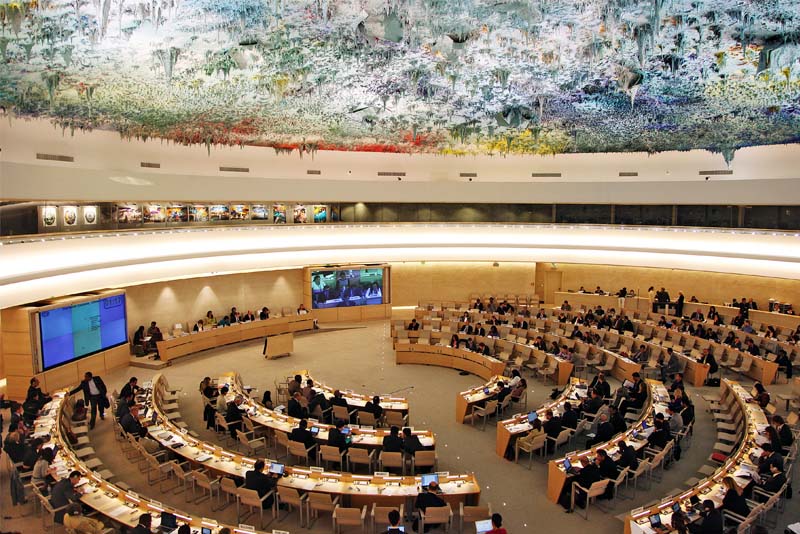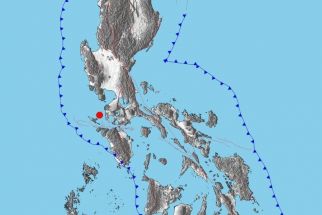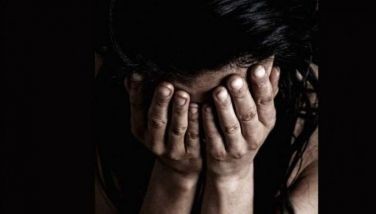Audrey Morallo - Philstar.com
September 28, 2017 | 4:03pm
MANILA, Philippines (First published at 11:40 p.m. on Sept. 28) — Noting that the human rights situation in the Philippines remains serious, 39 countries expressed concern over the rising number of drug-related killings in the country and called on the government to end and probe these deaths.
Iceland, reading the statement on behalf of 38 other nations, said the Philippine government should welcome a visit of Agnes Callamard, the UN special rapporteur on extrajudicial, summary or arbitrary executions, without conditions or limitations.
READ: What some international groups say about the Philippine war on drugs
The 39 signatories represent an increase from 32 nations which expressed a similar concern in the previous UN Human Rights Council (HRC) session in June. Some of the new signatories are the US, Canada, Australia, Ukraine and Georgia.
According to John Fisher, the Geneva director of the Human Rights Watch, Manila has so far been unwilling to heed calls to end what he termed as a "murderous campaign," referring to the government's drug war.
He added that the Philippines had also not been able to hold those responsible accountable.
Fisher called on the HRC to step in to end the violence, support an international investigation into the deaths and demand accountability.
"A growing chorus of voices is speaking out at the United Nations’ top human rights body to condemn the thousands of killings in the Philippines perpetrated in the name of President Duterte's so-called war on drugs," he said.
The 39 states remained concerned about the "climate of impunity" in relation to President Rodrigo Duterte's war on drugs which has been criticized both locally and internationally for its transgressions of human rights of drug suspects.
"We urge the government of the Philippines to take all necessary measures to bring these killings to an end and cooperate with the international community to pursue appropriate investigations into these incidents, in keeping with universal principles of democratic accountability and the rule of law," Iceland said in the 36th session of the UN's HRC.
Manila accepted only 103 out of the 257 recommendations forwarded by member states during its third Universal Periodic Review in Geneva last May.
Many nations were disappointed that the Philippines decided to just "note"—a move interpreted by observers as rejection—recommendations related to extrajudicial killings in the Duterte government's so-called war on drugs.
The Philippines also ignored recommendations relating to the protection of journalists and human rights activists and the removal of conditions on the visit of Callamard to the country.
“The Philippines has committed to fully accept 103 out of the 257 recommendations that we received during the Third Philippine Universal Periodic Review in Geneva,” presidential spokesperson Ernesto Abella said.
While they welcomed the Philippines' implementation of the more than 100 recommendations, the nations expressed regret over the rejection of the remaining 154 proposals which they said were needed to address "serious human rights violations."
The 39 countries also raised the issue of intimidation of human rights defenders and abuses and called on the government to create a safe and secure environment for these activities, indigenous people and journalists.
"[We] call upon the Philippines to ensure their full protection and the right to freedom of expression and peaceful assembly is guaranteed without reprisals," Iceland said.
"We reiterate, that as a member of the HRC, the Philippines is expected to uphold the highest standards of promotion and protection of human rights and cooperate fully with the Council," it added.
The other signatories to the statement were Australia, Austria, Belgium, Bulgaria, Canada, Croatia, Cyprus, Czech Republic, Denmark, Estonia, Finland, Georgia, Greece, Ireland, Italy, Latvia, Liechtenstein, Lithuania, Luxembourg, Macedonia, Malta, Moldova, Montenegro, Norway, Poland, Portugal, Romania, Slovakia, Slovenia, Spain, Sweden, Switzerland, The Netherlands and Ukraine.































